
Join 10k+ people to get notified about new posts, news and tips.
Do not worry we don't spam!
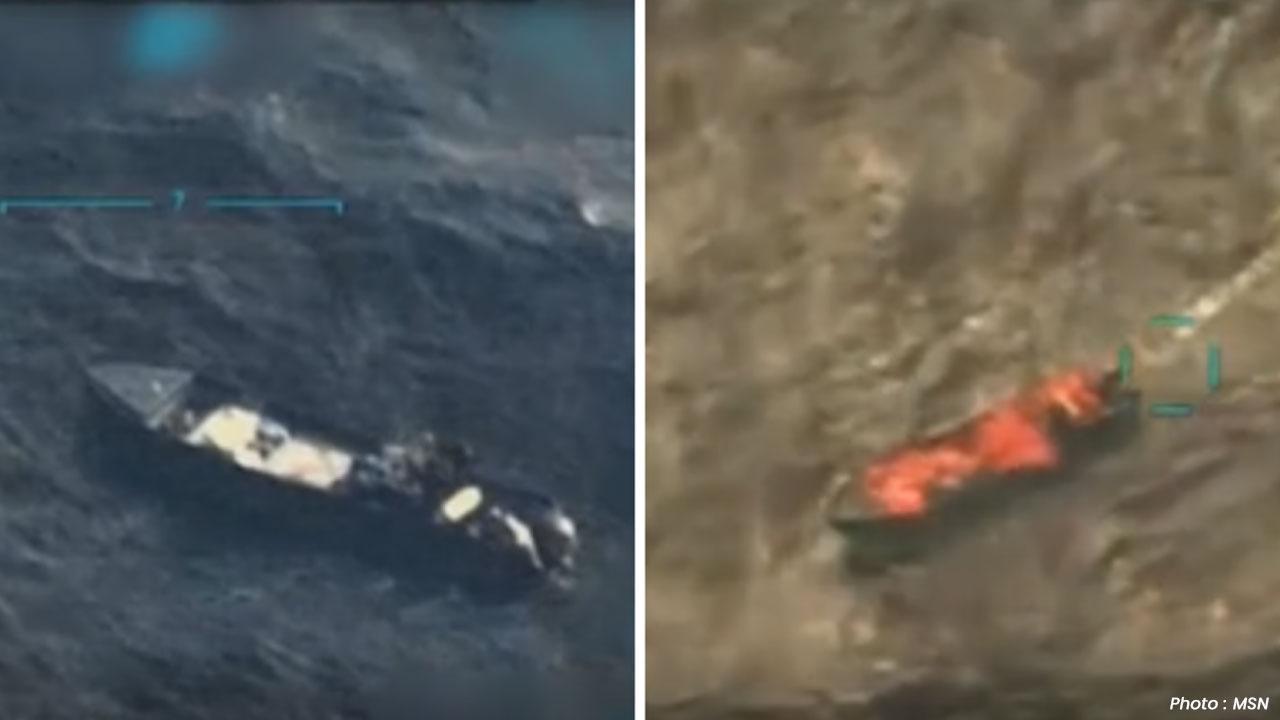
Post by : Raman
President Donald Trump announced that the U.S. military carried out a strike on Monday targeting a boat allegedly carrying drugs from Venezuela. According to Trump, three people were killed in the attack, which he described as part of a broader effort to combat drug cartels threatening the United States.
This latest strike comes nearly two weeks after an earlier U.S. military action that targeted a Venezuelan speedboat carrying drugs and resulted in 11 deaths. Trump said the strikes are meant to stop the flow of cocaine and fentanyl into the United States and called the cartels “confirmed narcoterrorists” posing an immediate threat to national security.
Trump’s Announcement and Rationale
Trump posted details of the strike on Truth Social, emphasizing that the boat was in international waters carrying dangerous drugs. He said, “These extremely violent drug trafficking cartels POSE A THREAT to U.S. National Security, Foreign Policy, and vital US Interests.”
Speaking to reporters in the Oval Office, Trump said he had seen footage of the strike and proof of the drugs being transported. “All you have to do is look at the cargo that was spattered all over the ocean — big bags of cocaine and fentanyl all over the place,” he said.
Trump also hinted that future military action could extend to land-based cartel operations. He claimed that the strikes had already reduced the number of vessels operating in the Caribbean but noted that cartels are still smuggling drugs over land. “We’re telling the cartels right now we’re going to be stopping them, too,” he said.
Defense Officials Support Aggressive Action
Defense Secretary Pete Hegseth also spoke out, warning cartels that the United States would “track them, kill them, and dismantle their networks throughout our hemisphere — at the times and places of our choosing.”
The White House released a short unclassified video of the strike on social media, further emphasizing the administration’s stance on aggressive action against drug trafficking organizations. Officials claim these measures are necessary to protect Americans from deadly narcotics entering the country.
Legal and Political Controversy
The military strikes have not been without criticism. Several U.S. senators, including both Democrats and Republicans, have questioned the legality of using the military for law enforcement purposes. They argue that targeting drug smugglers with military force may overstep executive authority.
The Trump administration has justified the strikes as acts of self-defense. Secretary of State Marco Rubio described the cartels as an “immediate threat” to the United States. Officials stated that the first strike targeted Tren de Aragua, a Venezuelan gang labeled a terrorist organization by the U.S. government. While it is unclear if the latest strike also targeted the same group, more military action is expected as the administration continues its campaign against drug cartels.
Venezuela’s Response
The Venezuelan government, led by President Nicolás Maduro, condemned the U.S. strike. Maduro accused the Trump administration of using the drug trafficking claim as an excuse for a military operation aimed at intimidation and potential regime change.
During a press conference, Maduro criticized a previous operation in which 18 U.S. Marines allegedly raided a Venezuelan fishing boat. He asked rhetorically, “What were they looking for? Tuna? What were they looking for?” Maduro framed the operations as provocations and warned against U.S. intervention in Venezuelan waters.
Rubio, however, reinforced the administration’s position, describing Venezuela not as a legitimate government but as a state controlled by a cartel. “We’re not going to have a cartel, operating or masquerading as a government, operating in our own hemisphere,” he said.
Impact on U.S.-Venezuela Relations
The strikes have further strained relations between the U.S. and Venezuela. Historically, the two countries have had tense diplomatic relations, with the U.S. imposing sanctions on Venezuela and opposing Maduro’s government. The latest military action highlights how U.S. policy toward Venezuela now directly includes the use of military force to combat drug trafficking networks.
Experts warn that military action can escalate tensions in the Caribbean region. While the administration claims the strikes are necessary for national security, critics argue that such operations risk diplomatic fallout and could provoke further conflict with Venezuelan authorities.
Drug Cartels and the U.S. Threat
The Trump administration has emphasized the danger of Venezuelan drug cartels to U.S. communities. Cocaine and fentanyl entering the U.S. have contributed to the opioid crisis and other public health emergencies.
By using military force, Trump aims to disrupt the operations of these cartels and send a message that the U.S. will act decisively to protect its citizens. According to administration officials, the first strike earlier this month was successful in reducing the number of vessels operating in the Caribbean.
However, land-based trafficking remains a problem. The president acknowledged that cartels continue to move drugs over land and hinted at the possibility of expanding U.S. operations to target these routes as well.
Congressional and Public Reactions
Several senators have expressed concern about the legality and implications of military strikes against non-state actors like drug cartels. Questions have been raised about whether the administration has exceeded its constitutional powers and whether such operations should be subject to Congressional oversight.
Public reaction is mixed. Some Americans support aggressive action against cartels, viewing it as necessary to combat drug-related deaths. Others are concerned about the risks of military escalation and the precedent of using armed forces for law enforcement purposes.
Historical Context
The United States has a long history of military involvement against drug trafficking organizations in Latin America. Previous administrations have conducted targeted operations, but the direct use of military force against boats in international waters is relatively rare.
By labeling Venezuelan cartels as terrorist organizations, the Trump administration has framed drug trafficking as both a national security and foreign policy issue. This allows the use of military action as a tool for enforcement, expanding the scope of what has traditionally been a law enforcement challenge.
Strategic Implications
The strikes demonstrate the U.S. commitment to disrupting drug networks before narcotics reach American shores. The administration hopes that these operations will reduce the flow of cocaine and fentanyl and protect U.S. communities.
Strategically, the strikes also send a message to other countries in the region that the U.S. will take decisive action against transnational criminal organizations. This may deter some operations but could also lead to increased tensions with Venezuela and other nations.
Looking Forward
The Trump administration appears committed to continuing military actions against drug cartels, both at sea and potentially on land. The administration has not disclosed the full scope of its plans but has indicated that further operations will target cartel networks throughout the hemisphere.
Observers will be watching closely to see how these operations affect U.S.-Venezuela relations, the legality of using military force against drug traffickers, and the overall impact on the drug trade.
For Americans, the stakes are high. Cocaine and fentanyl continue to cause significant harm, and the administration is emphasizing that aggressive action is necessary to protect U.S. citizens. Whether this approach proves effective or triggers diplomatic challenges remains to be seen.
The U.S. military strike on a Venezuelan drug boat killing three people marks a significant escalation in the Trump administration’s campaign against narcotics. While the administration argues the strike is necessary for national security, it raises legal, diplomatic, and ethical questions.
Venezuela has strongly condemned the actions, and U.S. lawmakers are scrutinizing the administration’s authority to conduct such strikes. The operation highlights the ongoing challenges of combating drug trafficking in the Caribbean and Latin America and sets the stage for future military actions in the hemisphere.
As the Trump administration continues its campaign, the world will watch closely to see how this bold approach affects international relations, cartel activity, and the flow of illegal drugs into the United States.
Trump drug strike Venezuela, US military against cartels, Venezuelan drug boat strike,

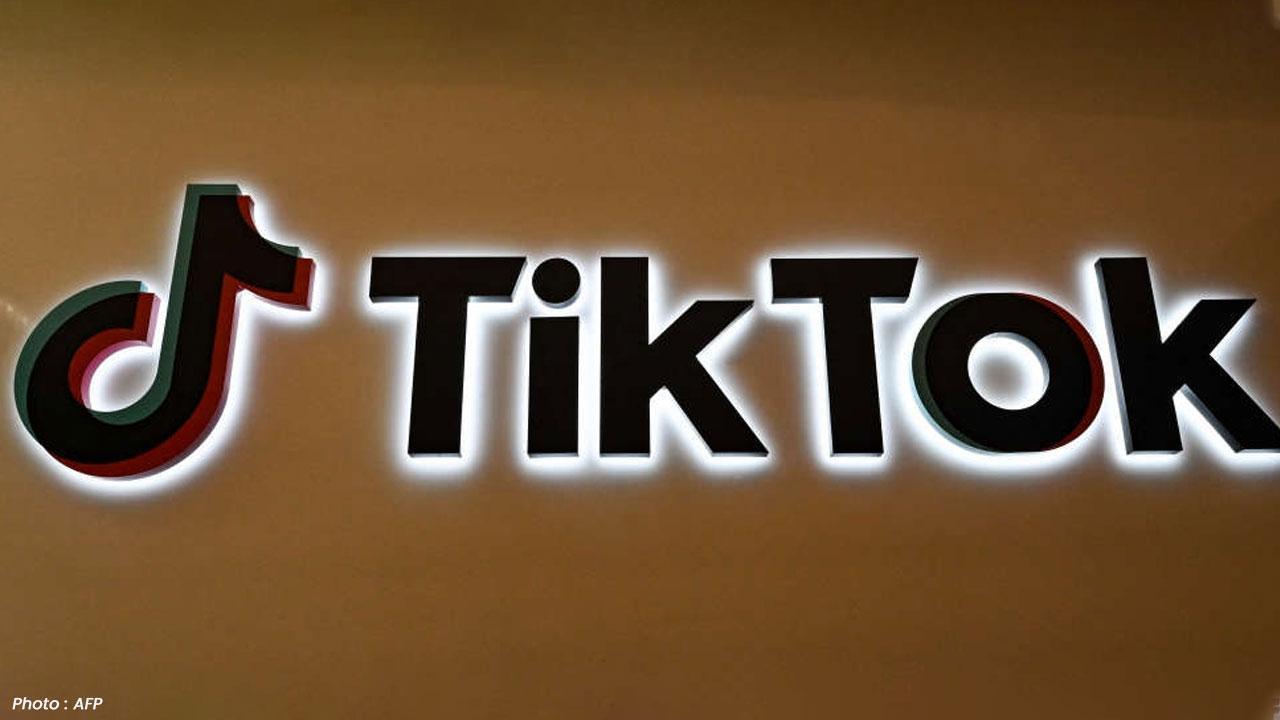
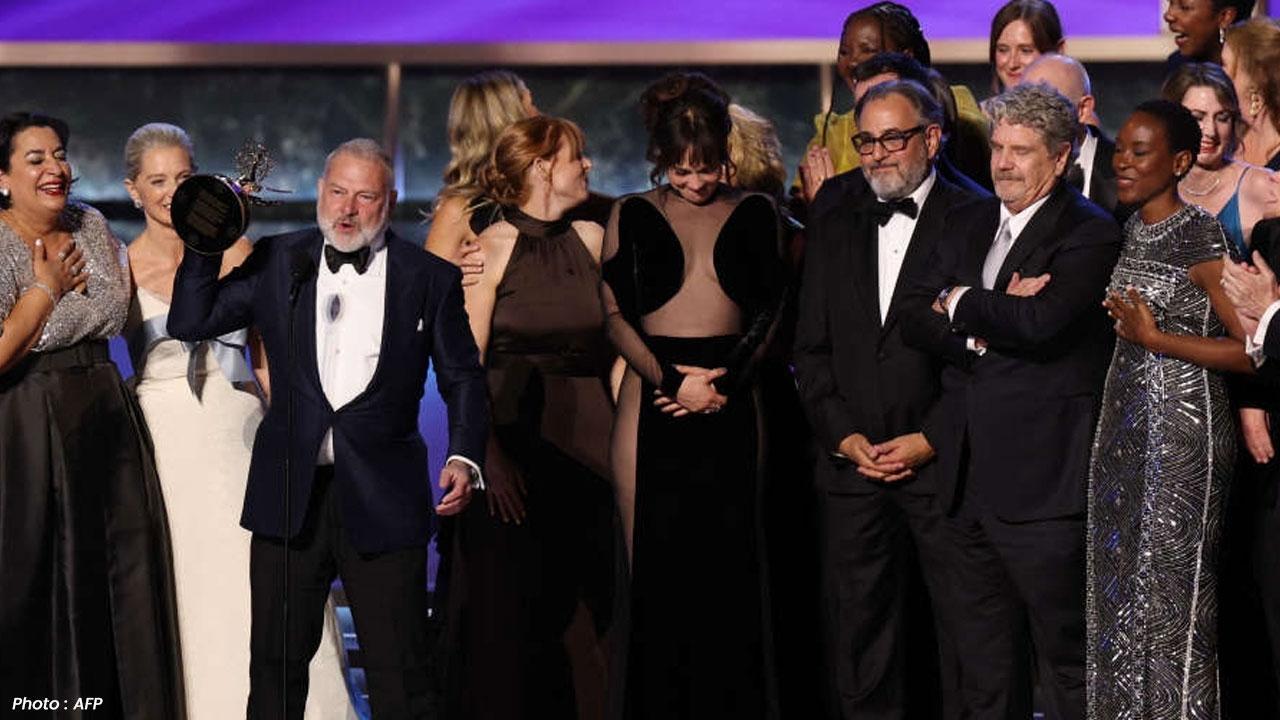



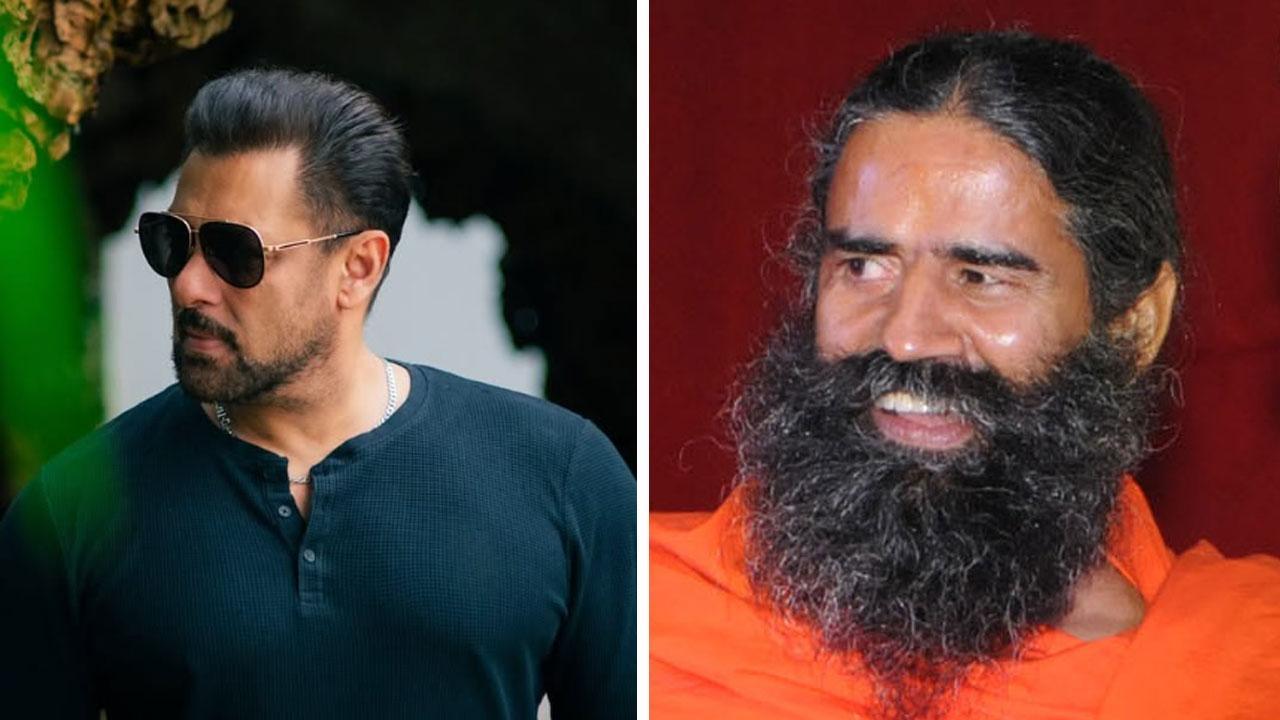



Lily Collins Shines in Glamorous Calvin Klein Look at New York Fashion Week
Lily Collins stuns at NY Fashion Week in a sparkling Calvin Klein co-ord set, blending elegance, gla

Lippo Di Carrara wins UAE President’s Cup Derby at Doncaster
Lippo De Carrere shines at Doncaster, winning the UAE President’s Cup UK Arabian Derby, the richest

Jaismine Lamboria Wins World Boxing Gold for India
India’s Jaismine Lamboria claimed World Boxing gold, while Nupur Sheoran earned silver and Pooja Ran

Sri Lanka beat Bangladesh by 6 wickets in Asia Cup 2025 opener
Sri Lanka started their Asia Cup 2025 campaign with a six-wicket win over Bangladesh, powered by Nis
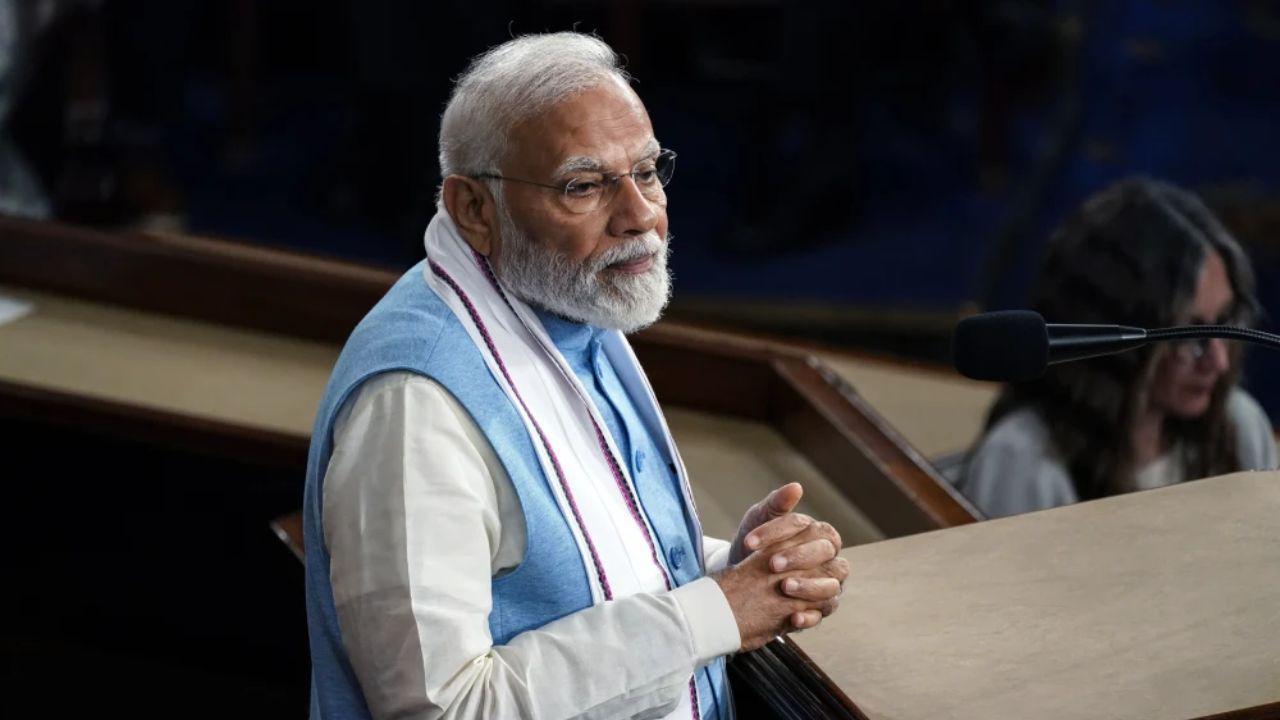
PM Modi Lays ₹6,300 Crore Projects in Assam Criticizes Congress
PM Modi accuses Congress of backing infiltrators, lays ₹6,300 crore health and infrastructure projec
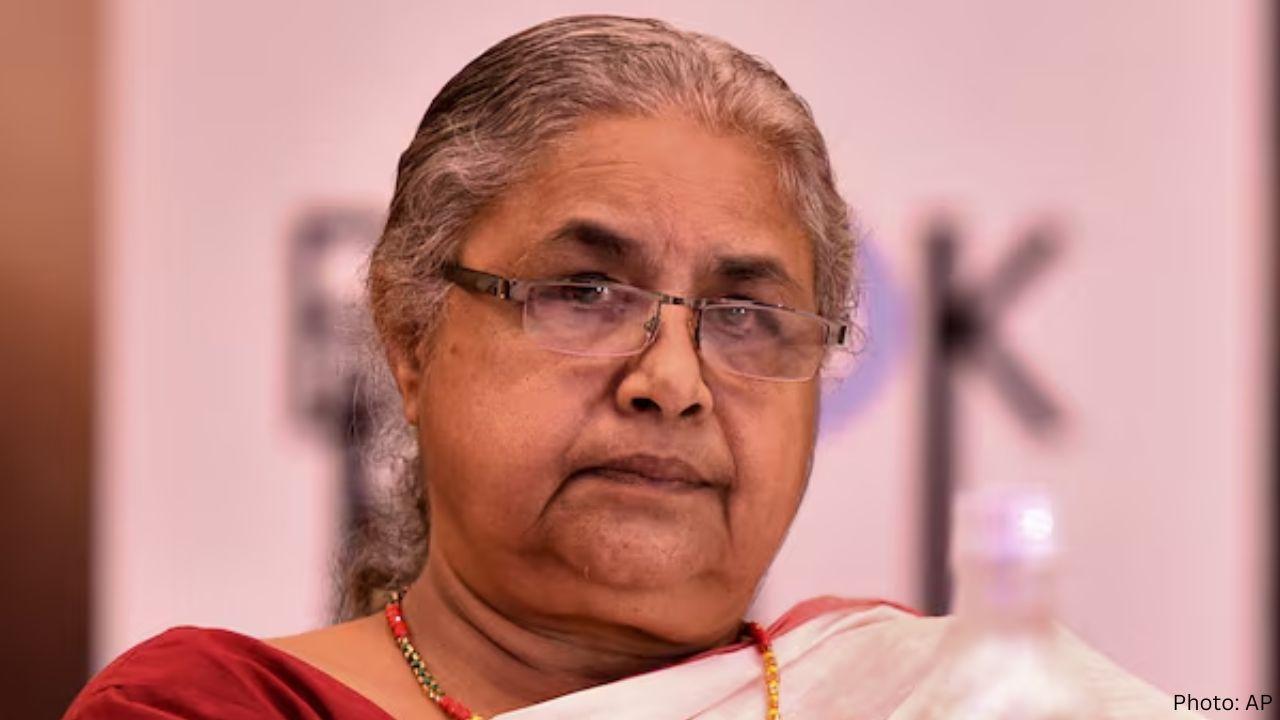
Sushila Karki Becomes Nepal’s First Woman Prime Minister
Eminent jurist Sushila Karki, 73, becomes Nepal’s first woman prime minister after Gen Z protests to